Frankfurt 2017: Mercedes-Benz S560e (W222) PHEV – 2.1 L/100km, 50 km EV Range
所有资讯Powertrain electrification has taken centre stage at this year’s Frankfurt Motorshow – few other companies have made bold statements the likes of Mercedes-Benz, rolling out future concepts like the EQA to F1-inspired hypercars like the Project ONE.
Following the successful launch of the facelifted (W222) S-Class at this year's Shanghai Motor Show, Mercedes-Benz’s seminal premium sedan now adds its newest addition to the S-Class family: S560e plug-in hybrid.
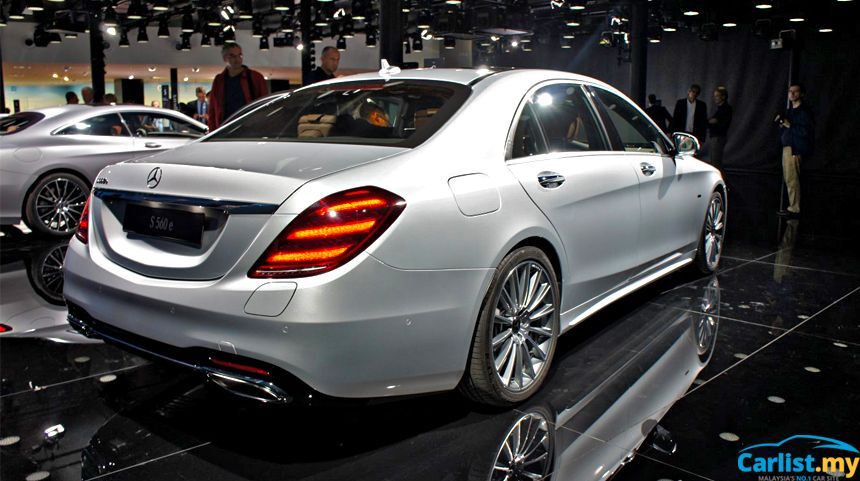
The new S560e is the successor of the S400h and expands on Mercedes’ current lineup of plug-in hybrid models. Moving forward, production of the S400h hybrid model will be discontinued, leaving plug-in hybrids as the powertrain of choice for the S-Class range.
The S560e combines a 3.0-litre turbocharged V6 engine that produces 367 hp and 500 Nm of torque, which is supplemented by a 90 kW electric motor with a peak torque of 400 Nm.
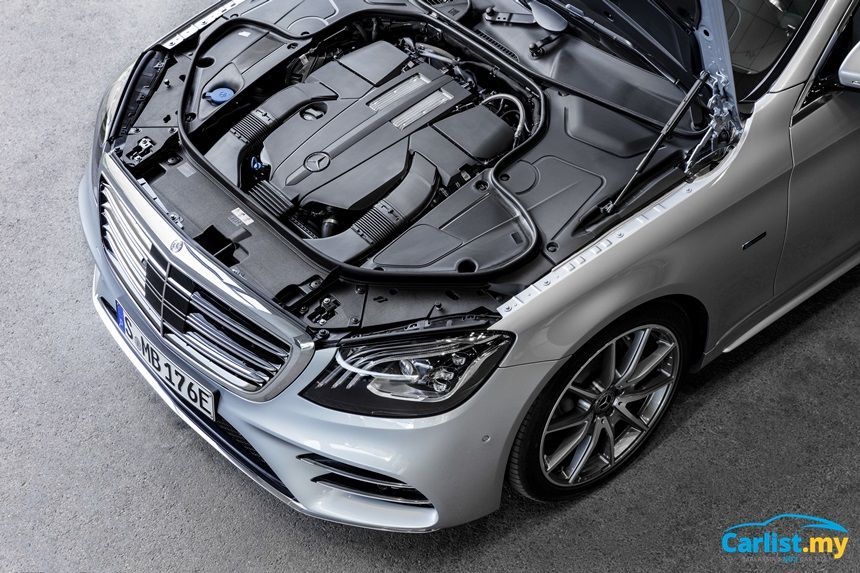
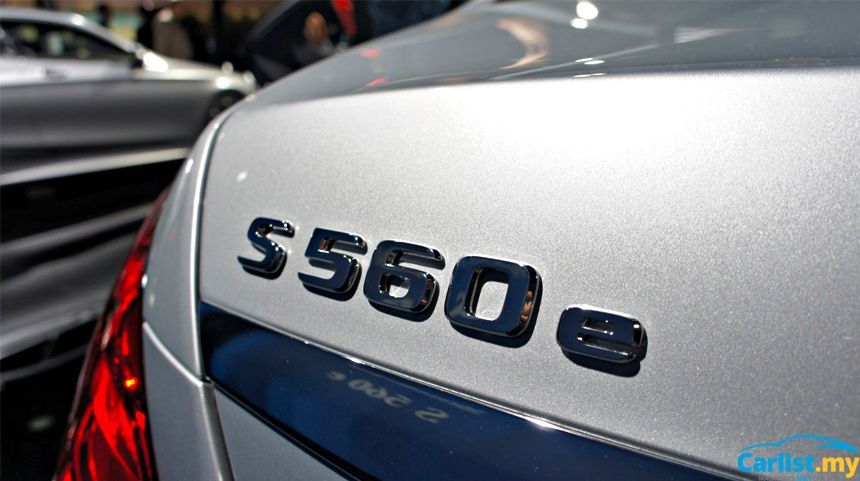
Power is sent through the latest-generation (9G-Tronic Plus) nine-speed automatic which is optimised to plug-in hybrid applications. This is achieved by housing the torque converter, clutch and electric motor within the compact hybrid drive unit.
The electric motor in the S560e – jointly developed with Bosch as part of the larger 'EM‑Motive' joint-venture offers with enhanced power electronics have allowed further increases in output and torque.
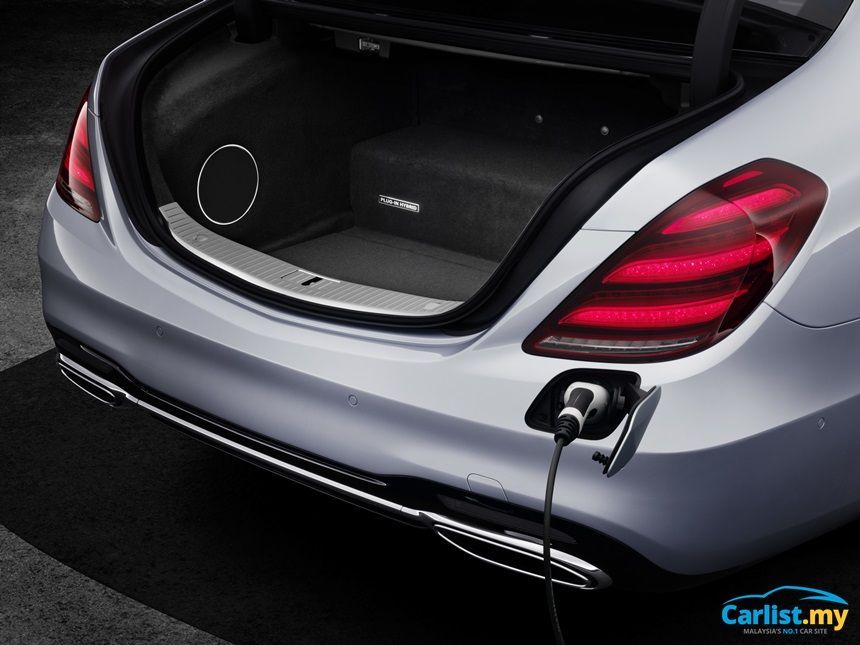
The S560e has an all-electric range of around 50 kilometres. While the battery size is identical to the S500e, new cell chemistry allows the cell capacity to be raised from 22 to 37 Ah. The new lithium-ion battery has an increased rated capacity of 13.5 kWh.
Compared to the S400h that we are more familiar with, however, the S560e's battery is smaller yet packs higher energy content. Bootspace is, therefore, bigger in comparison - from 395 to 410 litres. The battery system in the S560e is supplied, for the first time from wholly owned Daimler subsidiary, Deutsche Accumotive.
The combined fuel consumption is rated at 2.1-litre/ 100 km. Performance wise, the S560e will complete the 0-100 km/h dash in 5.0 seconds and accelerate to a 250 km/h top speed.
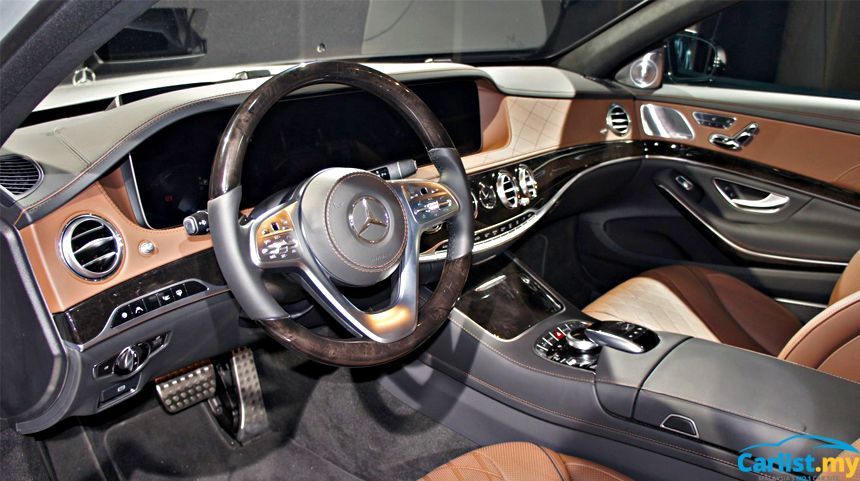
The S560e is also smarter – equipped with new support functions which integrate navigation data, traffic sign recognition and other (radar and stereo camera) data, to promote economical driving. Dubbed ECO Assist – the system feeds of a wealth of information to generate coasting simulations in the background.
Depending on the charge level of the battery and the traffic situation, it computes whether the vehicle should ideally be allowed to coast freely with the lowest possible driving resistance when releasing the accelerator or be decelerated so that the battery can be efficiently charged. A haptic accelerator pedal informs the driver when maximum electric power is deployed, or when to release the accelerator to achieve best economic gains.

To underline the importance of hybrids in the process of electrifying the car, the Mercedes-Benz plug-in models will, in future, feature the technology badge EQ Power.
Mercedes-Benz also confirms that in the near future – PHEV powertrains will feature in models from the C‑Class on up, given the drivetrain’s ability to offer both economy and performance which is exploitable regardless of driving styles and routes.
The decision is also buoyed by the company’s intelligent modular hybrid concept which is scalable, allowing it to be transferred to a large number of model series and body styles as well as left- and right-hand-drive variants.